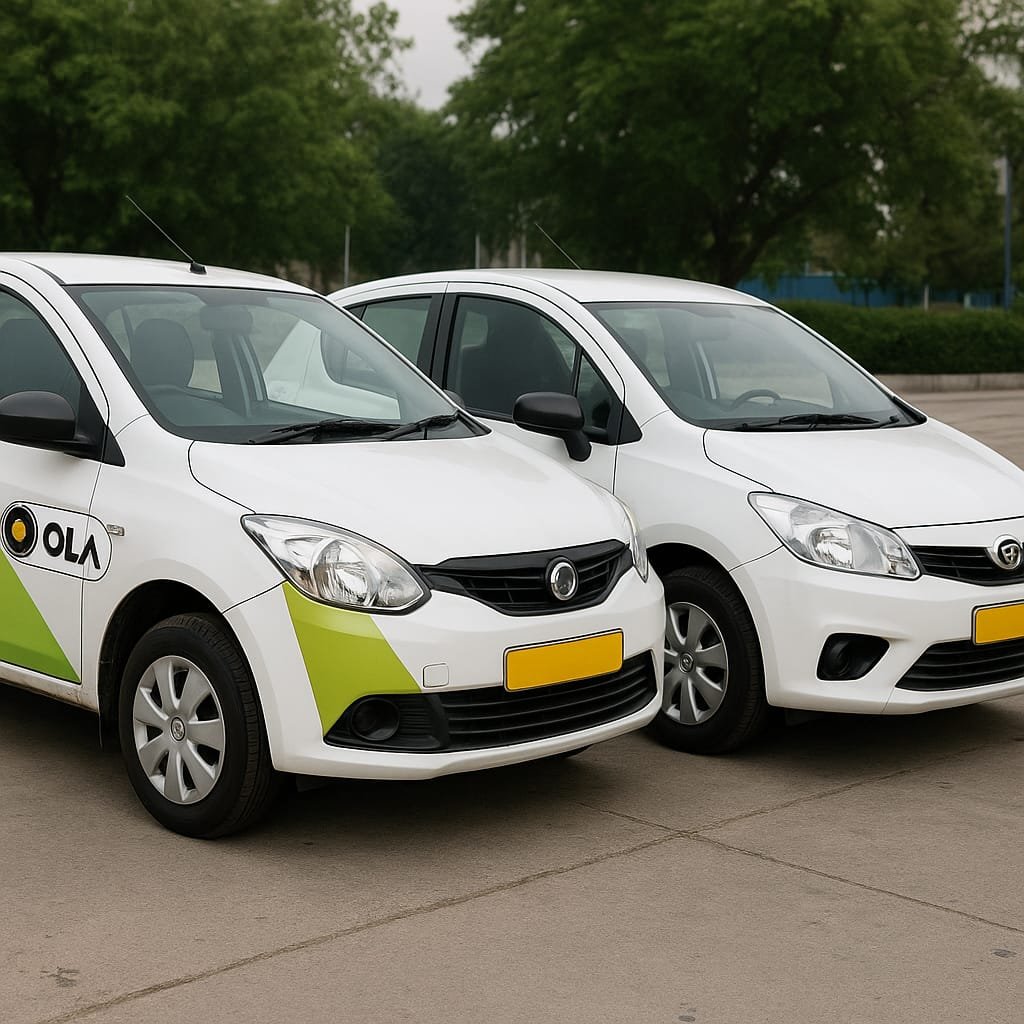
Drivers working for app-based cab services like Ola and Uber may soon have to pass a psychological test before they can hit the roads. This is part of a new proposal by the central government under the Motor Vehicles Aggregator Guidelines (MVAG) 2025, aimed at improving road safety and making rides more reliable and fairer for passengers and drivers alike.
The psychological test is designed to check whether drivers are mentally fit to take on the responsibility of transporting people. This move comes after several cases of road rage, misconduct, and rash driving by app-based cab drivers made headlines in recent years. The government wants to ensure that every cab driver is not only physically fit but also emotionally stable and able to handle stress, especially in cities where traffic is a daily challenge.
Currently, India has over 30 lakh registered app-based drivers, with nearly 15 lakh working for Ola and Uber combined. In major metros like Delhi, Mumbai, and Bengaluru, these platforms handle lakhs of rides every day. In Delhi NCR alone, it's estimated that more than 1.25 lakh Uber and Ola cabs operate regularly, out of which a significant number are older vehicles that may soon be removed from service.
That’s because one of the key proposals under MVAG 2025 is that vehicles older than eight years will not be allowed to operate on these platforms. The goal is to phase out old cars that may not meet safety or emission standards and replace them with newer, cleaner, and more comfortable vehicles. As of now, around 30% of cabs on Indian roads under these aggregators are over eight years old.
Another big change is the fare structure. Cab companies may be allowed to charge up to twice the base fare during peak hours and no less than half of it during lean times. For example, if the base fare is ₹100, it can go up to ₹200 when demand is high and drop to ₹50 when it's low. However, these are just central recommendations — it’s up to individual states to decide whether or not they want to enforce them.
To support drivers, the government has suggested that they must receive at least 80% of the total fare collected from each ride. Also, every driver should have health insurance of ₹5 lakh and term life insurance of ₹10 lakh. Each vehicle should have passenger insurance of ₹5 lakh per person, ensuring safety not just for the driver but also for riders in case of accidents.
The government is also pushing for greater transparency. Drivers must upload a clear, high-resolution photo of themselves on the app, and the vehicle registration and license details should be visible both inside the car and in the passenger’s app screen.
In a bid to reduce traffic and pollution, the MVAG 2025 allows private bikes to operate as taxis — a major step especially for smaller towns and congested city areas. This comes after the Karnataka High Court lifted the ban on bike taxis, giving new life to startups like Rapido and allowing more affordable travel options for daily commuters.
If implemented well by the states, MVAG 2025 could change how we use cab services across India. These proposals aim to create a balance between safety, environmental care, and driver well-being, ultimately making commuting safer, smarter, and more sustainable for everyone.





















